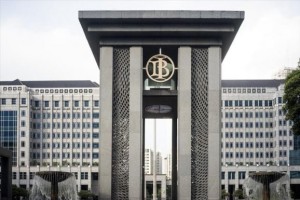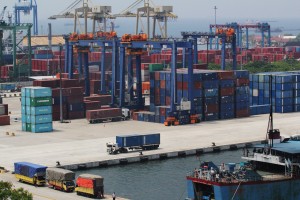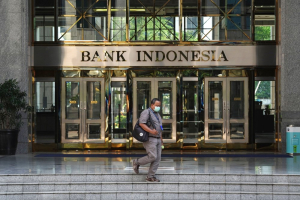Trump's tariff policy shakes global trading system, but has low impact on Indonesia: OJK
The Financial Services Authority (OJK) says the reciprocal tariff policy announced by United States President Donald J. Trump on April 2, 2025 will fundamentally change the global trading system, which has so far been based on the multilateral principles of the World Trade Organization (WTO).
Head of the Board of Commissioners of OJK, Mahendra Siregar, said that the U.S.'s move marks a major shift in the international trade order, which has the potential to overhaul the global trade architecture.
"U.S. trade tariffs can fundamentally − although it has not been said to have − change the global trading system that has been regulated so far," Mahendra said in a press conference on the results of the OJK Monthly Board of Commissioners Meeting (RDKB) in March which was held online on Friday, April 11, 2025.
According to him, the U.S. is now adopting a bilateral, case-by-case approach, instead of following the WTO multilateral agreement which guarantees the principle of equal treatment between countries. This approach has created uncertainty in the global market, which has triggered volatility in the financial sector in recent days.
"In the last week or ten days, we have seen how this policy has triggered very volatile dynamics in various variables, including the financial market," Mahendra cited.
Minimal impact
However, OJK assesses that the direct impact of Trump's tariff policy on the Indonesian economy is still relatively minimum. Even if the U.S. import tariff is set at 32 percent, its impact on Indonesia's gross domestic product (GDP) is estimated to be insignificant.
"Indonesia's export contribution to the U.S. is only less than 1 percent of national GDP, so the impact is relatively small compared to other countries in the region," he cited.
Although the risk is considered limited, OJK continues to encourage comprehensive mitigation of potential economic shocks. Mahendra also appreciates the Indonesian government's steps in choosing a diplomatic and negotiation approach in responding to U.S. policy, instead of taking retaliatory action.
"OJK fully supports the government's moves to negotiate and not retaliate against the tariff determination. This approach opens up opportunities for the creation of a mutually beneficial formula," he said.
Already have an account? Sign In
-
Start reading
Freemium
-
Monthly Subscription
30% OFF$26.03
$37.19/MonthCancel anytime
This offer is open to all new subscribers!
Subscribe now -
Yearly Subscription
33% OFF$228.13
$340.5/YearCancel anytime
This offer is open to all new subscribers!
Subscribe now






